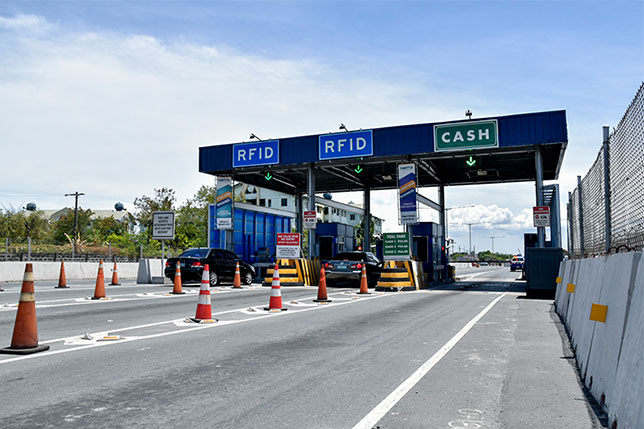The Philippine Reclamation Authority (PRA) on Monday dismissed Metro Pacific Tollways Corp. claims of ignoring their offer to take over the operations and maintenance of the Manila Cavite Expressway Project.
“PRA dismisses claims regarding lack of response to offers, challenges to revenue-sharing agreements, alleged project expenditures, and authority to file legal actions, affirming its adherence to due process and dedication to the welfare of the Filipino people,” the agency said in a statement.
“Consistent findings across five reports issued by the Commission on Audit (COA) have substantiated the presence of irregularities concerning the operational processes and revenue collection activities attributed to CIC,” PRA added.
According to the PRA, the irregularities encompass various aspects of the revenue collection process, indicating a pattern of non-compliance or misconduct that warrant a further investigation and potential remedial action consistent with applicable laws and regulations on public sector financial management.
The PRA said the MPTC offers appear “egregiously unfair, unreasonable, and morally objectionable” upon examination.
“The rejection of the offer underscores the PRA board of directors’ recognition of its inherent inequity and unsuitability. Additionally, the proposed buyout would entail the dissolution of PEATC, a government-owned and controlled corporation (GOCC) entrusted with the operation, maintenance, and toll collection of the MCTEP,” it said.
“Therefore, strict adherence to the requisite processes and regulations governing GOCC transactions becomes imperative,” PRA added.
The PRA also said the alleged expenditure of P11 billion pesos by CIC for project completion holds no relevance to the issue of revenue sharing between the parties.
“According to the terms of the joint venture agreement (JVA), the transition from the current 90-10 ratio to a fairer 60-40 ratio is predicated solely on the completion of Phase 1. The original parties to the JVA anticipated swift recoupment of investments and substantial profits for the private partner upon Phase 1’s completion,” the PRA said.
“Therefore, it is incumbent upon PRA to assert that the adjustment in revenue sharing to 60-40 in favor of the government is expressly tied to the fulfillment of Phase 1. Hence, it is crucial to underscore that the government is not obliged to await the entirety of the project or the continuation of the 90-10 revenue sharing arrangement. The government’s entitlement to an equitable share is contingent solely upon the completion of Phase 1 as specified in the JVA,” it added
Rogelio Singson, MPTC president and chief executive, said the business cannot shift to a 60-40 revenue sharing pact because the Cavitex project is an incomplete project.
“The project is a total of 23.8 kilometers. The only one that has been completed is R1 which is the reclaimed area of 7.5 kilometers. Then there is another 8.6-kilometer extension and there is ongoing Cavitex connecting C5 which is fully funded by CIC,” Singosn said.
“The arrangement will shift to 60-40 once we recover our investment. The original agreement is to finish until C5 then allow us to recover our investment,” he added.
As things stand, the CIC gets 90 percent of the revenue collection and the remaining 10 percent for the government.







